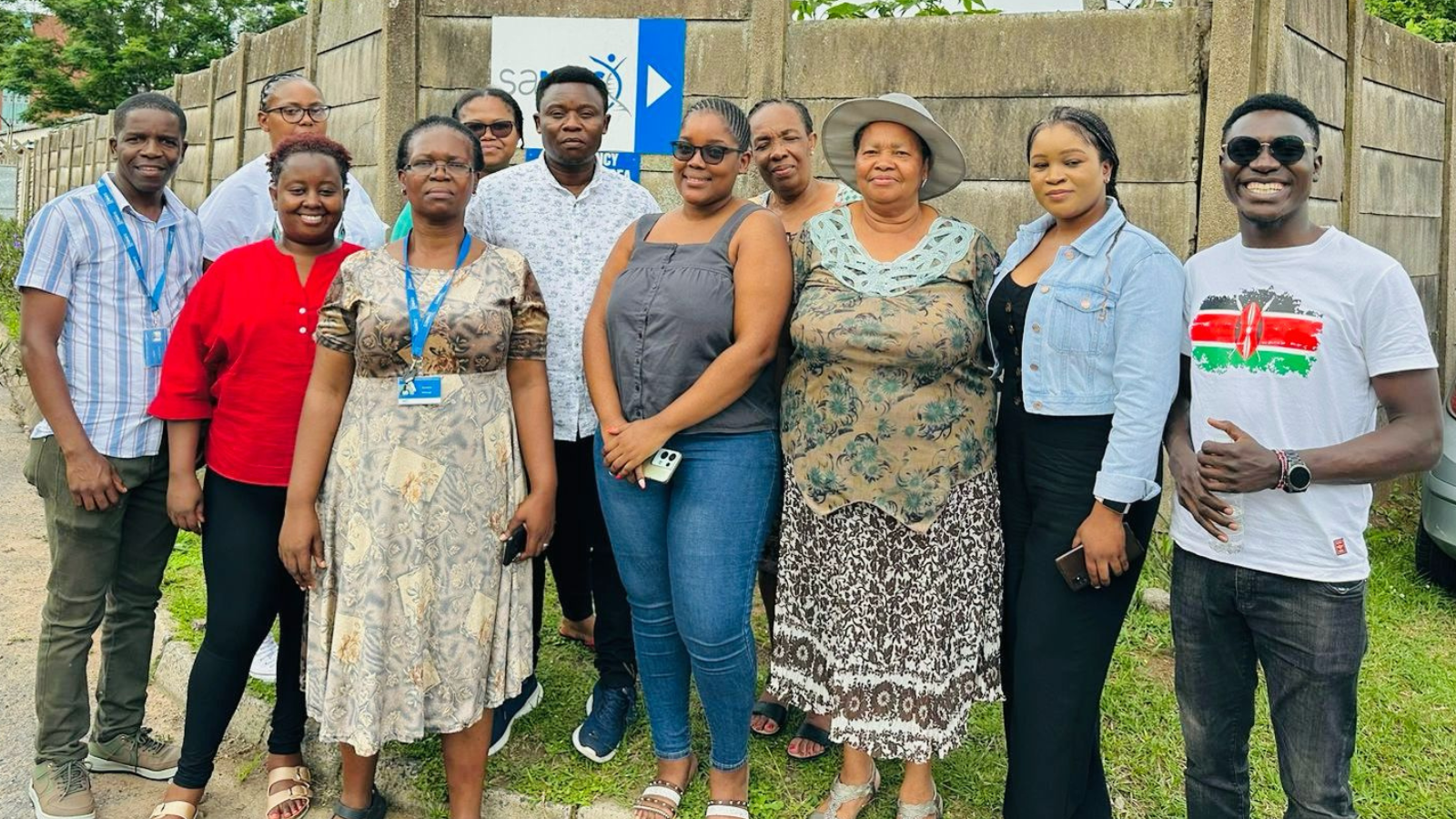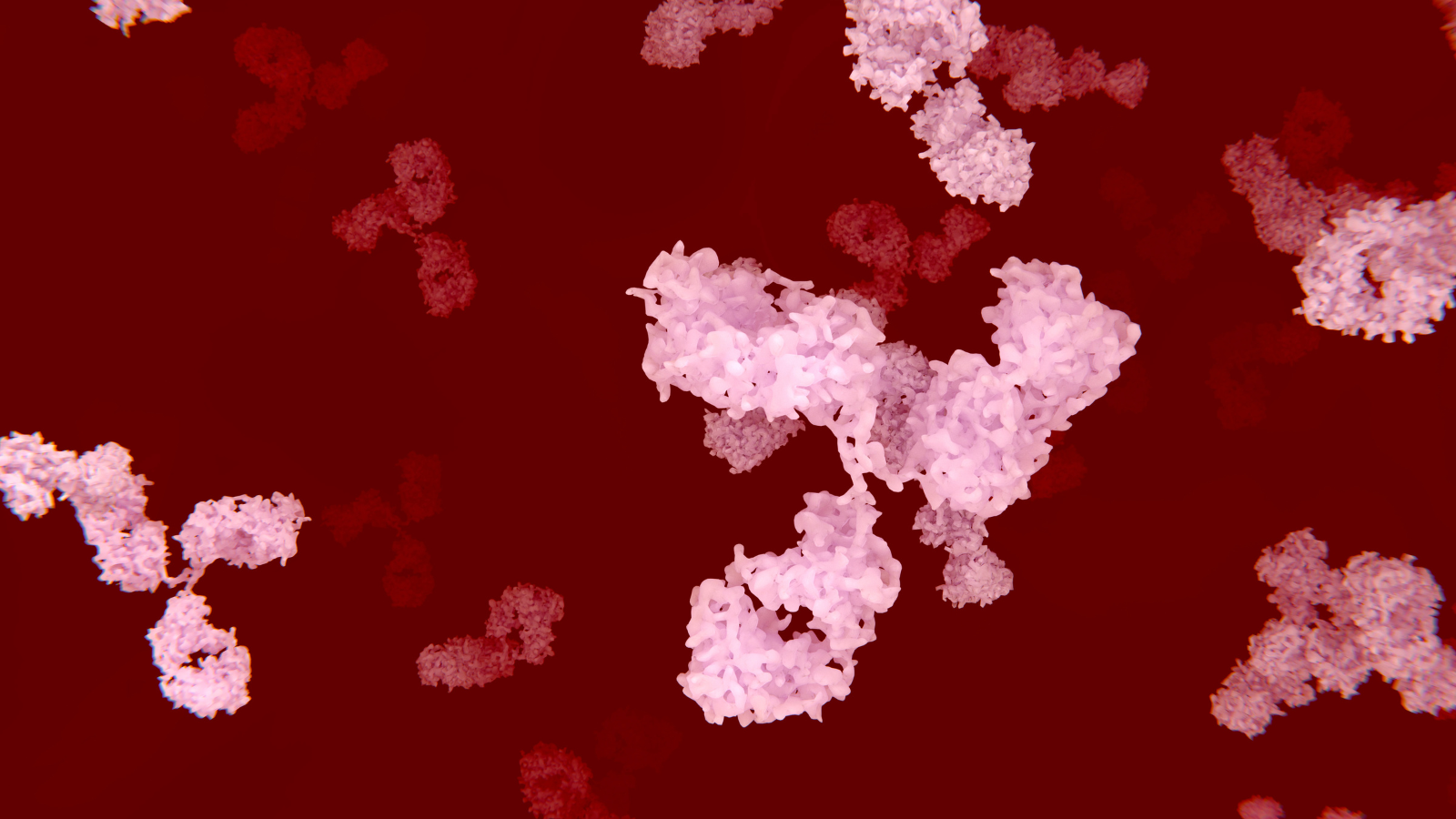
Our approach
We take a full-circle approach to product development, from the grassroots level to the lab to legislative bodies.
Mission
To translate scientific discoveries into affordable, globally accessible public health solutions.
Vision
A world where all people have equitable access to innovative vaccines and therapeutics.

Our health areas
- HIV
- Tuberculosis
- Lassa fever
- Marburg virus
- Sudan Ebolavirus
- COVID-19
HIV
The challenge
HIV/AIDS remains one of the deadliest infectious diseases, with 1.3 million people acquiring HIV in 2022. Given the complexities of HIV, traditional approaches to vaccine development have so far failed to result in a vaccine that provides protection against HIV. However, a vaccine is still needed to bring a true end to the HIV pandemic. Source: UNAIDS
Our solution
IAVI scientists and our collaborators are developing next-generation HIV vaccines to address the challenges of HIV vaccine design. Together, we have pioneered promising new vaccination strategies and the discovery of broadly neutralizing antibodies (bnAbs) against HIV. IAVI and our partners are developing HIV bnAbs to prevent HIV acquisition while we advance vaccine candidates.
Tuberculosis
The challenge
Tuberculosis (TB) is the world’s leading infectious disease killer. In 2022, 10.6 million people fell ill with TB and 1.3 million people died of TB disease. The only available TB vaccine is the century-old Bacille Calmette-Guérin, or BCG. While this vaccine has efficacy in protecting against severe TB disease in infants and young children, it is largely ineffective in adolescents and adults, among whom most transmission and disease occurs. Source: WHO
Our solution
IAVI works across our global hubs with a diverse network of partners to advance the most promising TB vaccine candidates from discovery through clinical trials, and eventually, to post-licensure access. Our work extends to policy and advocacy initiatives that support TB vaccine development and access in regions where new vaccines are needed most.
Lassa fever
The challenge
Lassa fever is an acute viral hemorrhagic illness endemic to West Africa that causes significant annual outbreaks of disease. Lassa fever is difficult to diagnose, and surveillance data is limited. Current estimates range from 300,000 to 500,000 cases and 5,000 related deaths each year. No licensed vaccines for Lassa fever exist. Source: WHO
Our solution
IAVI is developing a single-dose vaccine candidate for Lassa that is based on a recombinant vesicular stomatitis virus (rVSV) vector. This technology is similar to that underlying an approved Ebola Zaire virus vaccine. IAVI’s Lassa vaccine candidate was well tolerated and immunogenic over a wide dose range in a Phase I clinical study. IAVI also conducts Lassa epidemiological studies and modeling to support future vaccine access.
Marburg virus
The challenge
Marburg virus is a filovirus and the causative agent of Marburg virus disease (MVD), which has a case fatality ratio of up to 88%. Marburg virus has the capacity to cause outbreaks with high fatality rates and is a potential bioterror threat. No vaccines or antiviral treatments are approved for MVD. A Marburg vaccine is urgently needed to respond to future outbreaks. Source: WHO
Our solution
IAVI is developing a vaccine candidate for Marburg that is based on a recombinant vesicular stomatitis virus (rVSV) vector. This technology is similar to that underlying an approved Ebola Zaire virus vaccine, which is now approved by the U.S. FDA and registered for use in several African countries. Preclinical data demonstrates that IAVI’s Marburg vaccine candidate is highly protective in an animal model with one dose.
Sudan Ebolavirus
The challenge
Sudan ebolavirus is a filovirus and causes outbreaks of Ebola disease, most recently in 2022 in Uganda. Case fatality rates of Ebola disease caused by Sudan ebolavirus have varied from 41% to 100% in past outbreaks. The licensed vaccine for Ebola Zaire virus does not provide cross protection against the Sudan strain. An Ebola Sudan vaccine is urgently needed to prevent and respond to future outbreaks. Source: WHO
Our solution
IAVI is developing a vaccine candidate for Sudan ebolavirus that is based on a recombinant vesicular stomatitis virus (rVSV) vector similar to the technology underlying an approved Ebola Zaire virus vaccine. During the 2022 Ebola outbreak in Uganda, the WHO selected IAVI’s Sudan ebolavirus vaccine candidate for a planned ring vaccination trial. While the trial did not go forward due to outbreak control, IAVI has continued clinical development to prepare for future outbreaks.
COVID-19
The challenge
Since December 2019, over 760 million cases of COVID-19 and 6.9 million deaths have been recorded worldwide, but the actual number is thought to be higher. While highly effective, approved COVID-19 vaccines do not fully block transmission or breakthrough infection. Additional COVID-19 vaccines continue to be an urgent need, particularly vaccines suitable for widespread use in middle and low-income countries. Source: WHO
Our solution
IAVI is developing a COVID-19 vaccine candidate that is based on a recombinant vesicular stomatitis virus (rVSV) vector. The vaccine candidate has demonstrated safety in humans when administered intramuscularly and has been produced at scale to support larger future clinical trials. IAVI is also investigating an intranasal formulation of our COVID-19 vaccine candidate to prevent infection.
Our locations
IAVI Africa
- Cape Town Office, South Africa
- Nairobi Office, Kenya
IAVI Europe
- Amsterdam Office, The Netherlands
- Human Immunology Lab, London, U.K.
IAVI India
- Gurugram, Haryana Office
- Antibody Translational Research Program, IAVI-THSTI, Faridabad
IAVI U.S.
- New York Office
- Vaccine Design & Development Lab, New York
- Neutralizing Antibody Center, California
Recent news & media

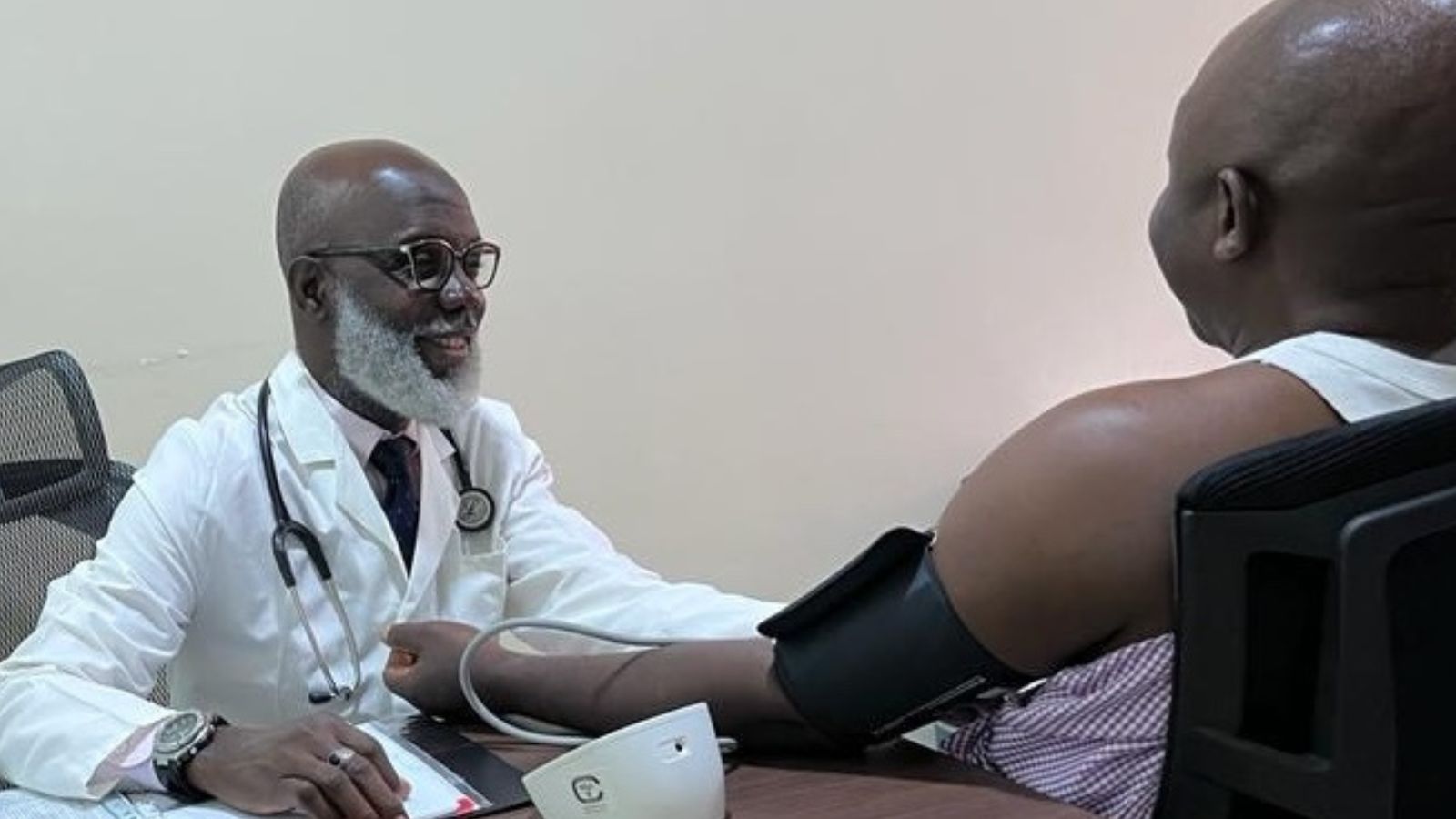
Participants in Nigeria vaccinated in first-ever Phase 2 Lassa fever vaccine clinical trial, sponsored by IAVI
April, 04 2024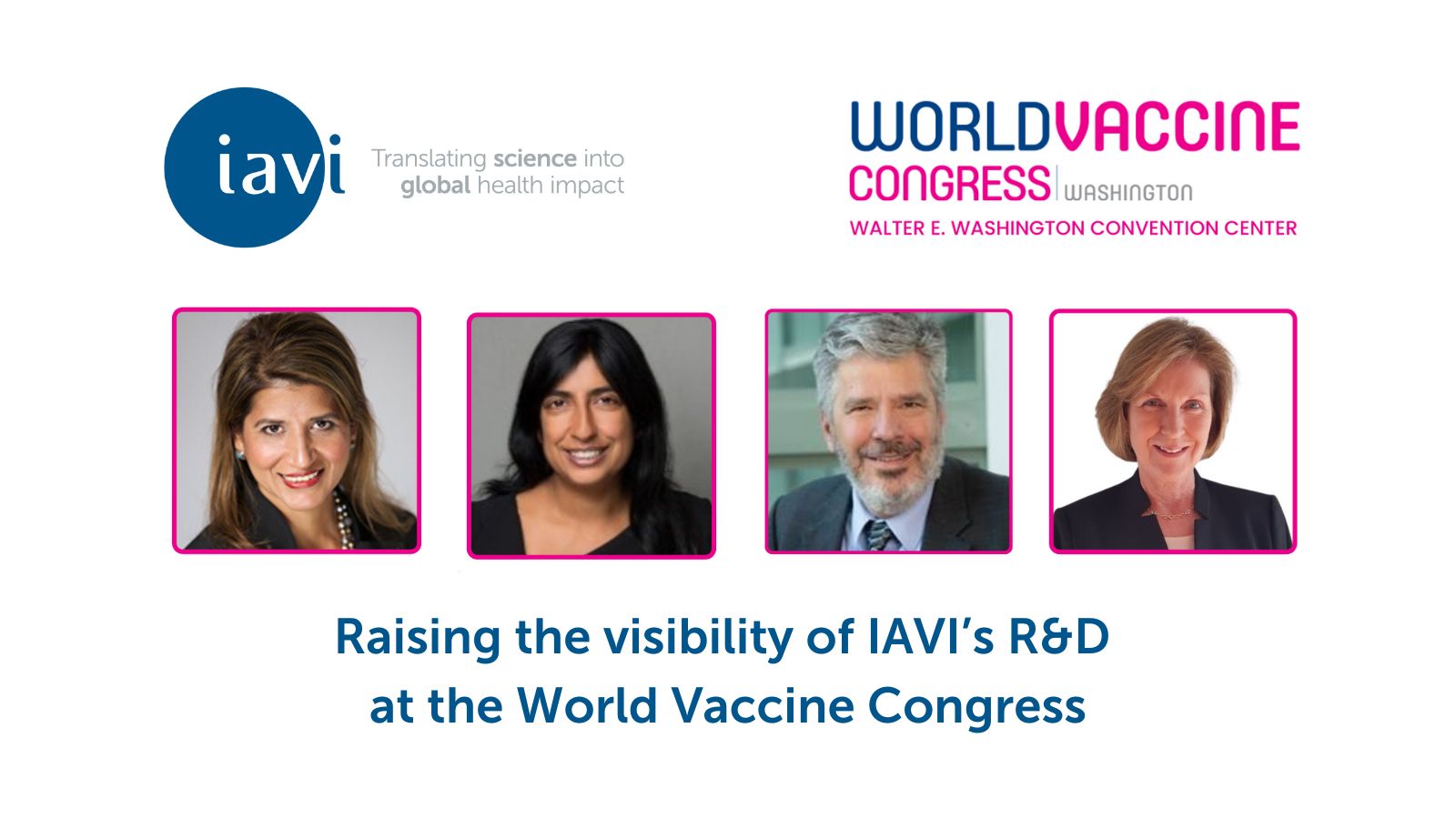
World Vaccine Congress highlights IAVI’s R&D from end to end
March, 29 2024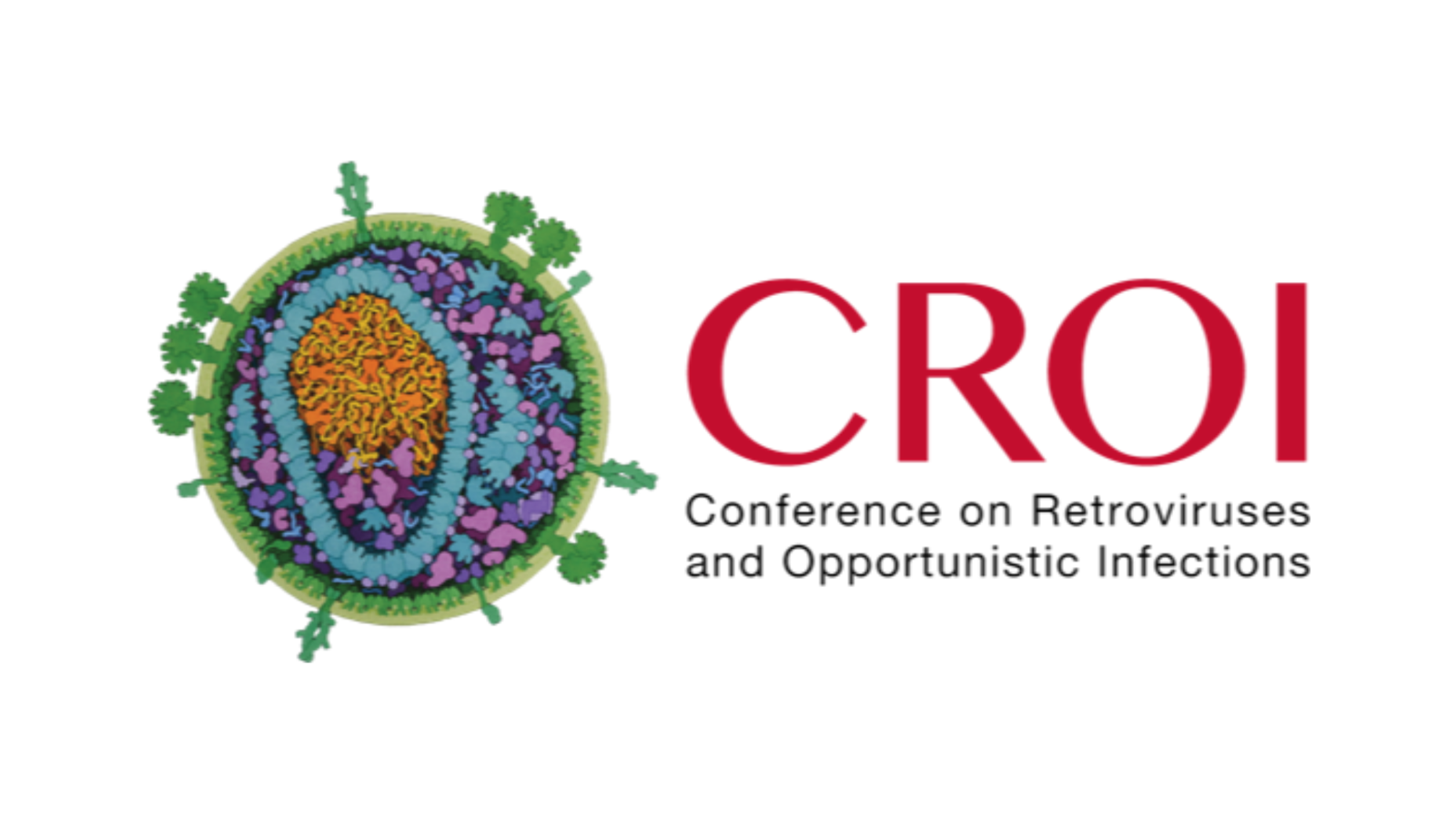
Don’t Stop Believin’: This year’s HIV vaccine research theme
March, 14 2024
With syphilis, it’s yesterday once more
March, 14 2024